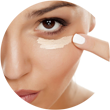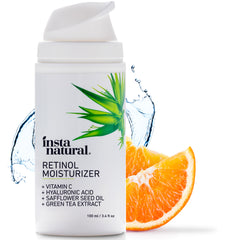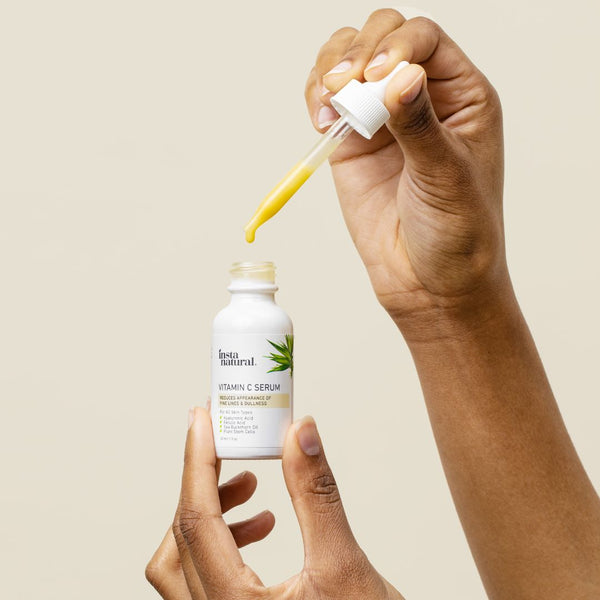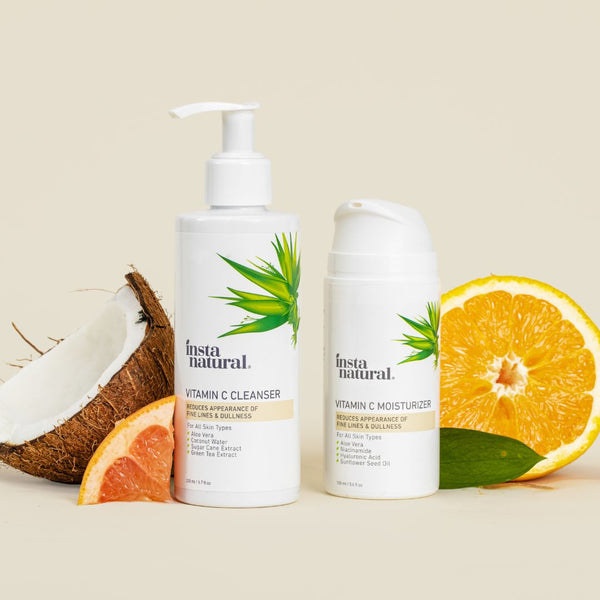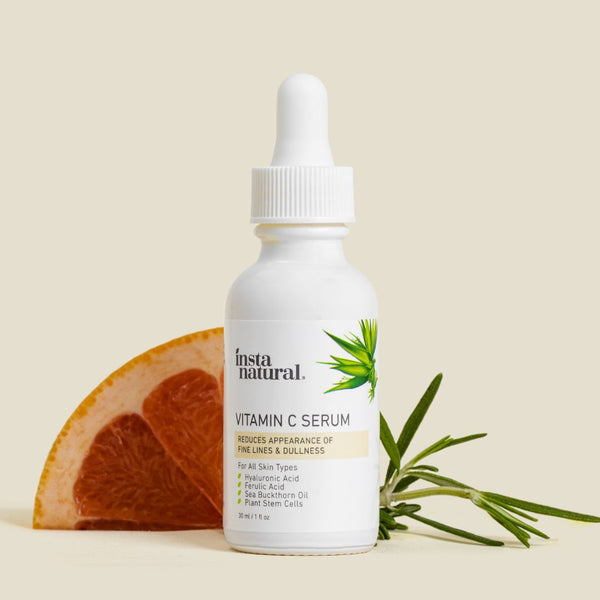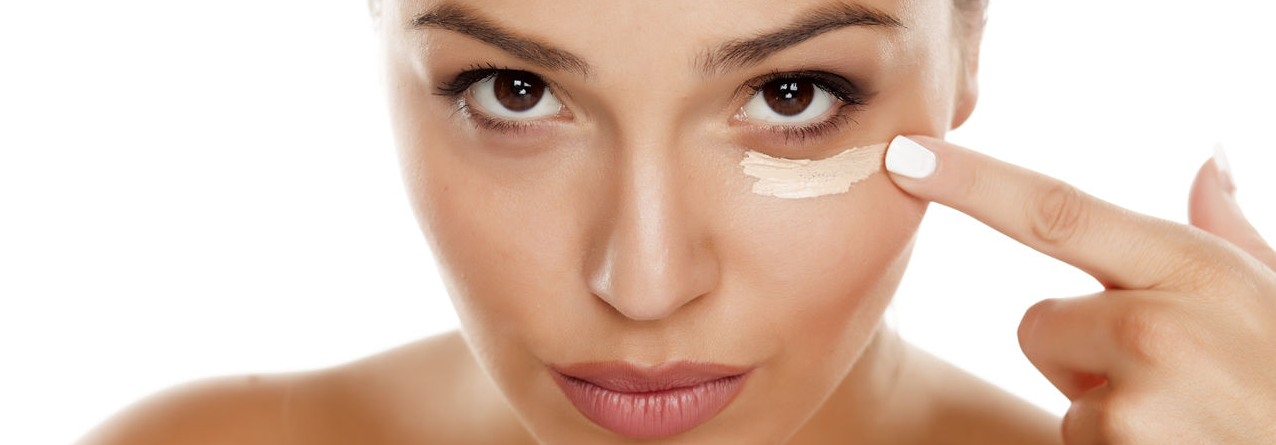
Is it time to reevaluate your anti-aging skin care regimen, or do you just want to find out which products will help you glow? In either case, you should add a Retinol-based product into your routine. You may have heard the word “Retinol” being tossed around at beauty counters and in advertisements, but you might still wonder exactly what Retinol is. Why is there so much hype around it? Does it really work?
Here, we’ll take a look at the answers to those questions. After reading this guide, you’ll be able to buy Retinol-based products with confidence.
Retinol: What It Is
 The University of Maryland Medical Center explains, “Vitamin A comes from two sources. One group, called retinoids, comes from animal sources and includes Retinol. The other group, called carotenoids, comes from plants and includes beta-carotene.”
The University of Maryland Medical Center explains, “Vitamin A comes from two sources. One group, called retinoids, comes from animal sources and includes Retinol. The other group, called carotenoids, comes from plants and includes beta-carotene.”
The types of vitamin A that come from animal sources are often used in skincare products. Some retinoids are only approved for use in potent prescription products. However, Retinol itself is approved for non-prescription use.
In addition to its benefits for skin, vitamin A serves other purposes within the body. This fat-soluble vitamin:
- Aids in cellular reproduction
- Contributes to good vision, particularly at night
- Is essential for fetal development
- Plays a role in bone formation, immune system function, wound healing, and growth
If you want to add extra vitamin A to your diet, you can consume organ meats, salmon and some other types of fish, and dairy products. You can get plant-based vitamin A, otherwise known as provitamin A, from green leafy vegetables and some fruits, including cantaloupe and mango.
Now that you have an overall view of Retinol and what it does, you can look more closely at its benefits for your skin. Here are some reasons why Retinol should be your new best friend when it comes to skincare.
Retinol Promotes Collagen Production
Collagen is often touted as being important in promoting good-looking skin, but what exactly is collagen? Medical News Today defines it as “a hard, insoluble and fibrous protein that makes up one-third of the protein in the human body.” Collagen’s name comes from a Greek word that means “glue.”
One of collagen’s jobs is to promote strong, structurally sound skin. It promotes the replacement of dead skin cells. Unfortunately, as we age, we produce less and less collagen, and we might need some help to make up the difference.
Retinol encourages your body to produce more collagen, leading to better-looking skin. One dermatology study asked 36 participants over age 80 to use a retinol cream on their arm up to three times a week. After about six months, the participants noticed improvements in their skin that were easy to see with the naked eye.
Of course, you do not need to be over age 80 to benefit from a little extra collagen. Environmental factors, including exposure to ultraviolet light, can hinder collagen production and increase those little fine lines on your skin. It is never to early to start using retinol.
Retinol Helps to Increase Cell Turnover
People of all ages deal with acne. Retinol promotes cellular turnover, vanquishing dead cells and replacing them with new ones. Because dead cells can clog pores and cause blemishes, getting rid of them benefits your skin.
A common misconception about Retinol is that it exfoliates the skin. However, this is not true. Exfoliation happens on the outer layers of the skin, while Retinol works from within. Hence, when you complement regular exfoliation with Retinol use, you are reaching as much of your skin as possible, giving you a healthy, youthful glow.
Another benefit of increased cell turnover is that, by getting rid of dead cells, you make it easier for your living cells to absorb serums and other skincare products that are part of your beauty routine.
Retinol Improves Skin Tone
If you have patches of dull or discolored skin, Retinol may be the key to an improved appearance. By promoting cellular turnover, Retinol can help get rid of those discolored cells and reveal fresher, lighter-looking skin.
You may want to use Retinol along with other natural products to improve your skin tone. For example, applying lemon juice to your skin can promote the proper pH balance and contribute to a more even tone. However, if your skin is irritated, you should probably not use lemon juice because it can sting. Other natural items, including honey, oatmeal, and milk, can also help improve skin tone.
The key is to find a routine that works for your unique skin.
Retinol Can Shrink Pores
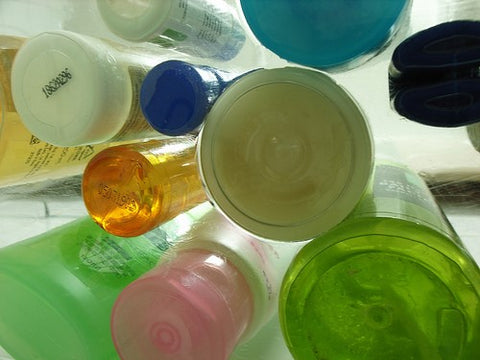
Genetics play the primary role in determining the size of your pores. However, environmental factors can contribute to oversized pores, and Retinol can help get your pores back to their proper size.
The cells that line your pores can stop functioning properly, possibly because of debris or because of other factors. Retinol can “communicate” with cells, telling them to start doing their jobs better. You may see improved pore size and, as a result, skin that is smoother and more beautiful.
Retinol May Battle Psoriasis
Some doctors prescribe a topical retinoid cream for the treatment of plaque psoriasis. Although Retinol is less potent than retinoids, it may still help clean up skin.
Retinol is Scientifically Proven
Mayo Clinic lists some of the potential uses for Retinol (Vitamin A). For each potential use, the website gives Retinol a grade based on the availability of research and the study results. For the treatment of acne as well as for treating sun-damaged skin, Retinol received the best possible grade.
One particular study, mentioned on the U.S. National Library of Medicine National Institutes of Health’s website, concluded that “retinol-treated aged skin is more likely to withstand skin injury and ulcer formation along with improved appearance.”
Some other benefits of Retinol that are not related to skincare also received high marks. For example, vitamin A can help reduce anemia and fight dry eyes.
Retinol May Help Fight Warts
Some studies show that a topical vitamin A cream can serve as an effective treatment for common warts that do not respond to salicylic acid and other common treatments. There is also a vitamin A pill that is used for addressing warts.
The studies regarding warts and vitamin A focus primarily on retinoids rather than Retinol, but Retinol may still be worth a try if warts are a problem for you.
Retinol Is Less Irritating and More Affordable
Some potent retinoids can increase your sensitivity to sunlight and cause redness, flaking, and other irritation when you first start to use them. Retinol is safe to use during the daytime, and it is less likely to cause irritation. However, keep in mind that Retinol itself is sensitive to sunlight, so you may choose to use it at night instead.
If you have particularly sensitive skin, you may want to start your Retinol routine slowly by applying it once every couple of days.
A related perk of Retinol versus stronger ingredients is that quality Retinol serums are available without a prescription. You don't have to make time in your day to see your dermatologist, and you can still look forward to seeing great results.
While some prescription products are covered by insurance, they may still cost you a bit of money. You can find affordable over-the-counter Retinol products that are both effective and safe to use.
Tips and Reminders for Using Retinol
Are you ready to add Retinol into your skincare routine? It is a wonderful ingredient that has helped countless individuals with a range of skin issues, from wrinkles to discoloration and everything in between. Before you leap into Retinol usage, here are some tips and reminders that will help you get the most out of it:
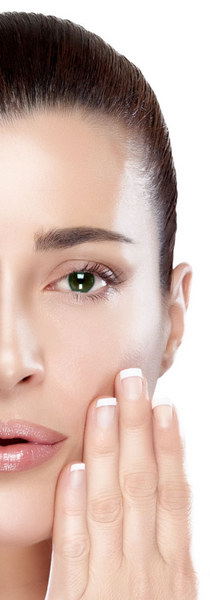
Use Retinol in the Evening
A solid skincare routine will have you use products both in the morning and in the evening. In the morning, you might wash your face with an invigorating scrub and then apply some sunscreen. In the evening, after you wash and apply toner, use Retinol. You should use it in the evening, since sunlight makes Retinol less effective.
However, if you want to use Retinol during the day, you can. Just be sure to protect yourself from the sun.
Also, keep in mind that any Retinol products you buy should not be in a jar with a wide mouth, since the jar will expose the Retinol to large amounts of air, which can impact its efficacy.
A Small Percentage of People Cannot Use Retinol
It isn’t uncommon for new Retinol users to experience a little skin irritation at first, but most people’s skin will adjust and they can fully enjoy Retinol’s many benefits. However, a few people's skin will not adjust. If the irritation continues for an extended length of time, stop using Retinol and look for other natural skincare products to suit your needs.
Start Slowly
Begin your Retinol routine by using it every other night. If you don’t notice any redness or flaking after a few applications, you can start using it daily — or even twice a day if you're so inclined.
It Takes More Than Retinol
Retinol is fantastic, but even skincare’s superhero needs sidekicks to back it up. For the best results, you should regularly cleanse and exfoliate your skin. You should also consider teaming Retinol up with other anti-aging serums that contain vitamins and antioxidants.
Make sure to use sunscreen every day. The sun’s harmful effects can undo Retinol’s hard work.
There are a few things you should not use alongside Retinol. If your skin is sensitive, do not use Retinol and a prescription retinoid at the same time. Also, avoid products with benzoyl peroxide or alpha hydroxy acids, because these may severely dry out your skin if used with Retinol.
Be Patient
Retinol is not an overnight solution for wrinkles and other skin issues. Remember the study mentioned earlier about people over 80 years old? They saw significant improvements after about six months. It is unlikely you’ll have to wait that long before you really start to get excited about Retinol. If you’re using a non-prescription product, expect to see results after eight to 12 weeks. Make it fun by taking before and after pictures!
Wet or Dry Skin Doesn’t Matter
You do not have to wait until your skin is completely dry before you apply a Retinol serum. One expert quoted on Allure’s website says, “There's no evidence in the scientific literature I've seen that shows damp or wet skin exacerbates sensitivity… Nothing having to do with application decides how much of the Retinol is converted into retinoic acid, the form of vitamin A that actually repairs skin. That's solely related to your skin's chemistry and retinoid receptors.”
How to Choose a Retinol Product
Earlier, this article mentioned that you shouldn’t buy Retinol products that are packaged in a wide-mouthed jar, but there is more you should consider when making your choice.
Try to find Retinol products that come with a money back guarantee. If you cannot use Retinol, or for some other reason you change your mind, you don’t want to end up losing the money that you spent on the serum, even if you bought it at a reasonable price.
Look at the percentage of Retinol in the product as well as the other ingredients. Some products have Retinol as the primary ingredient, and they also have other ingredients that contribute to healthy skin. You'll also come across products that have a smaller percentage of Retinol and may focus on treating acne instead of addressing the signs of aging. Carefully read product labels and decide which one is right for you.
Try Retinol Today!
Retinol is one of the best skincare ingredients out there, and thanks to extensive scientific testing, you can be confident that it works. While it is true that Retinol isn’t for everyone, you should find out if it is for you.
You’ll enjoy seeing the years and blemishes leave your face to reveal fresh, youthful skin. It isn’t a miracle, but it may feel like one. Order your Retinol products today!
Shop Retinol Skin Care
Retinol Serum, $22 Retinol Moisturizer, $24
